


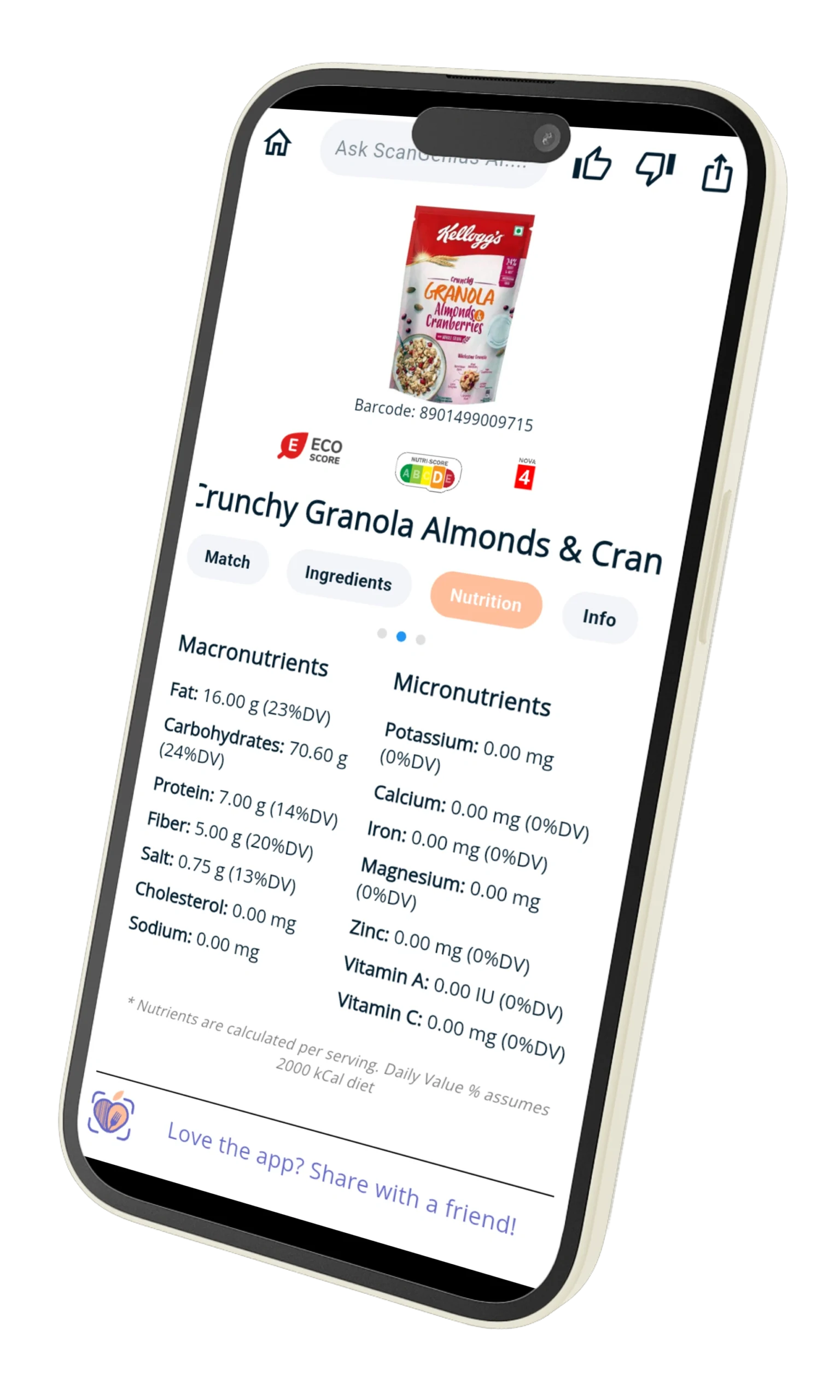
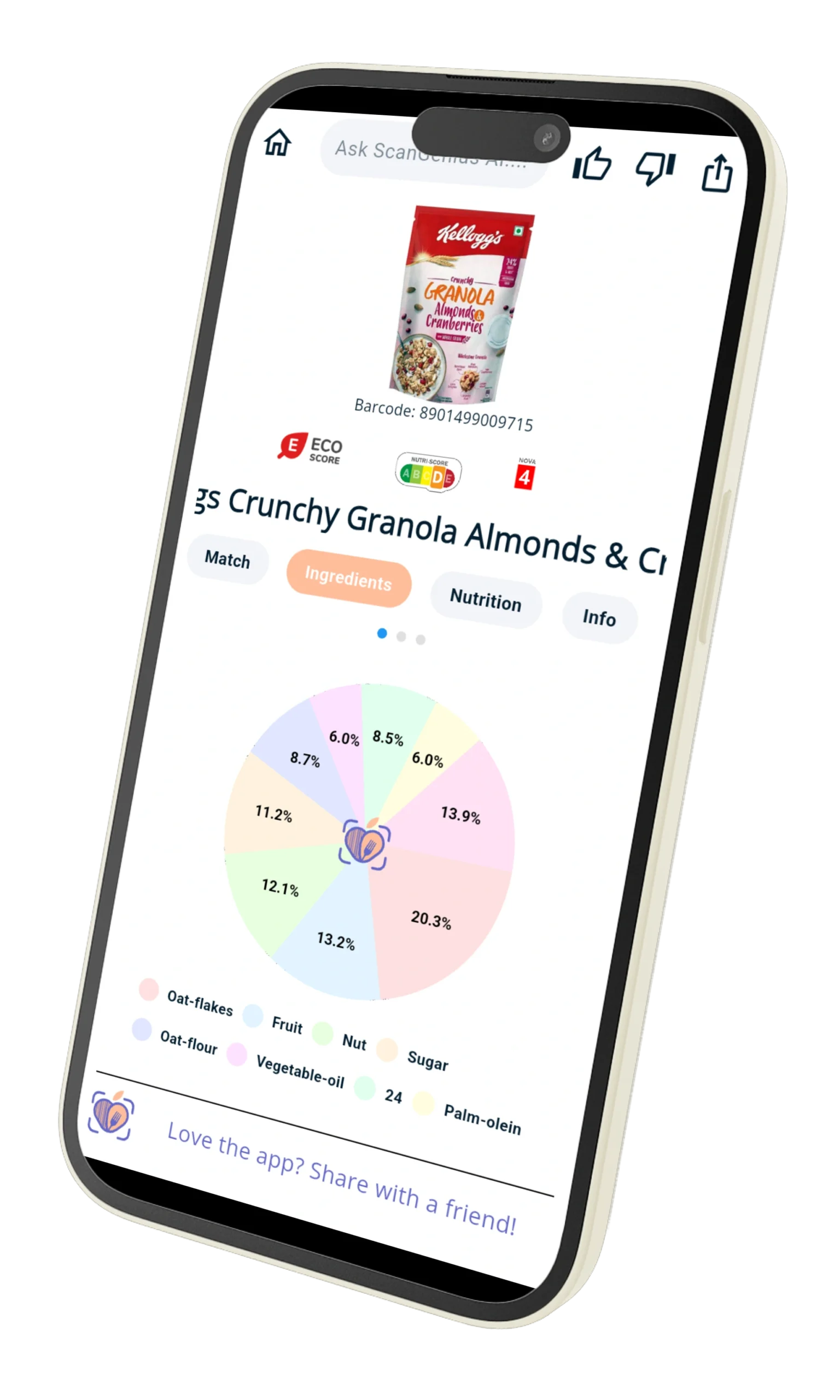

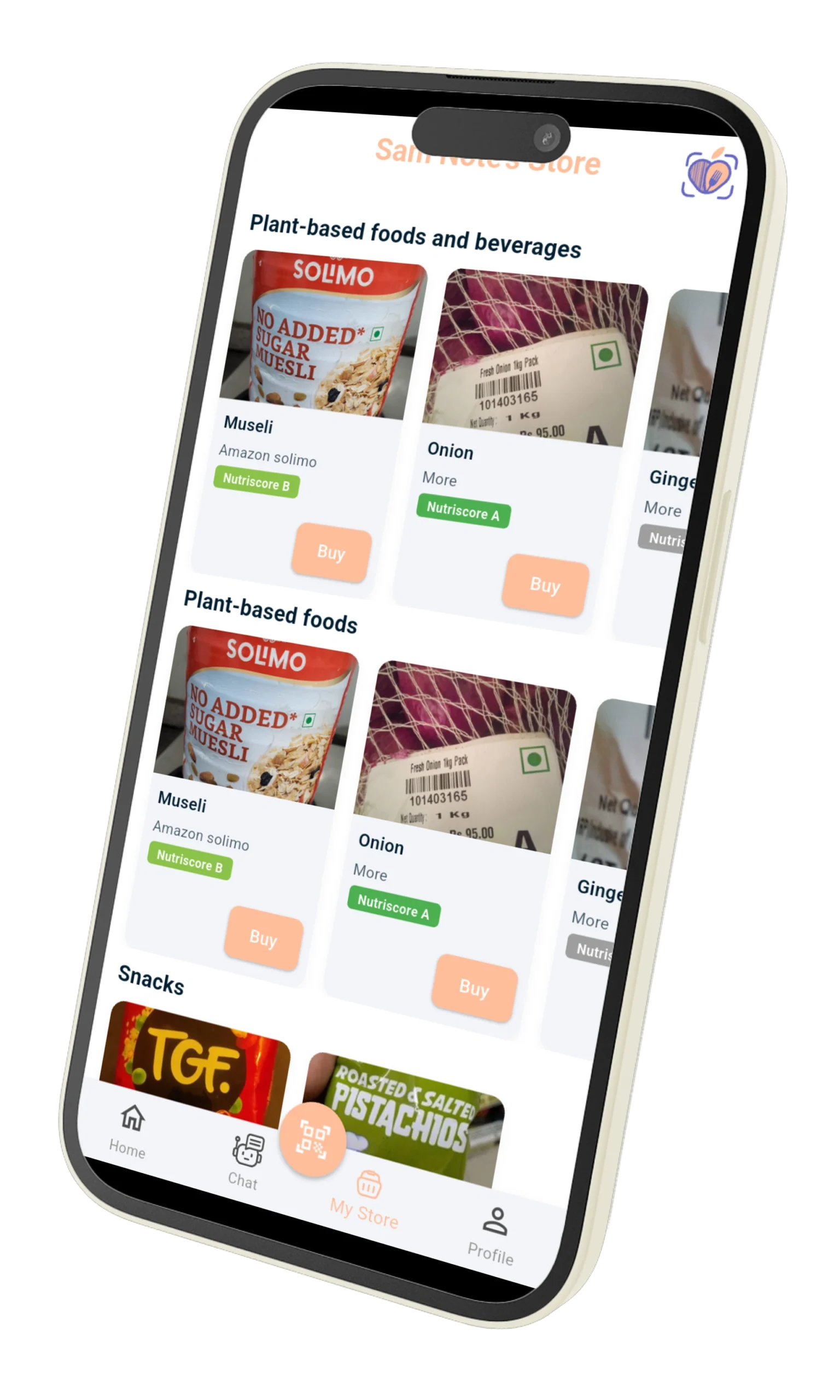



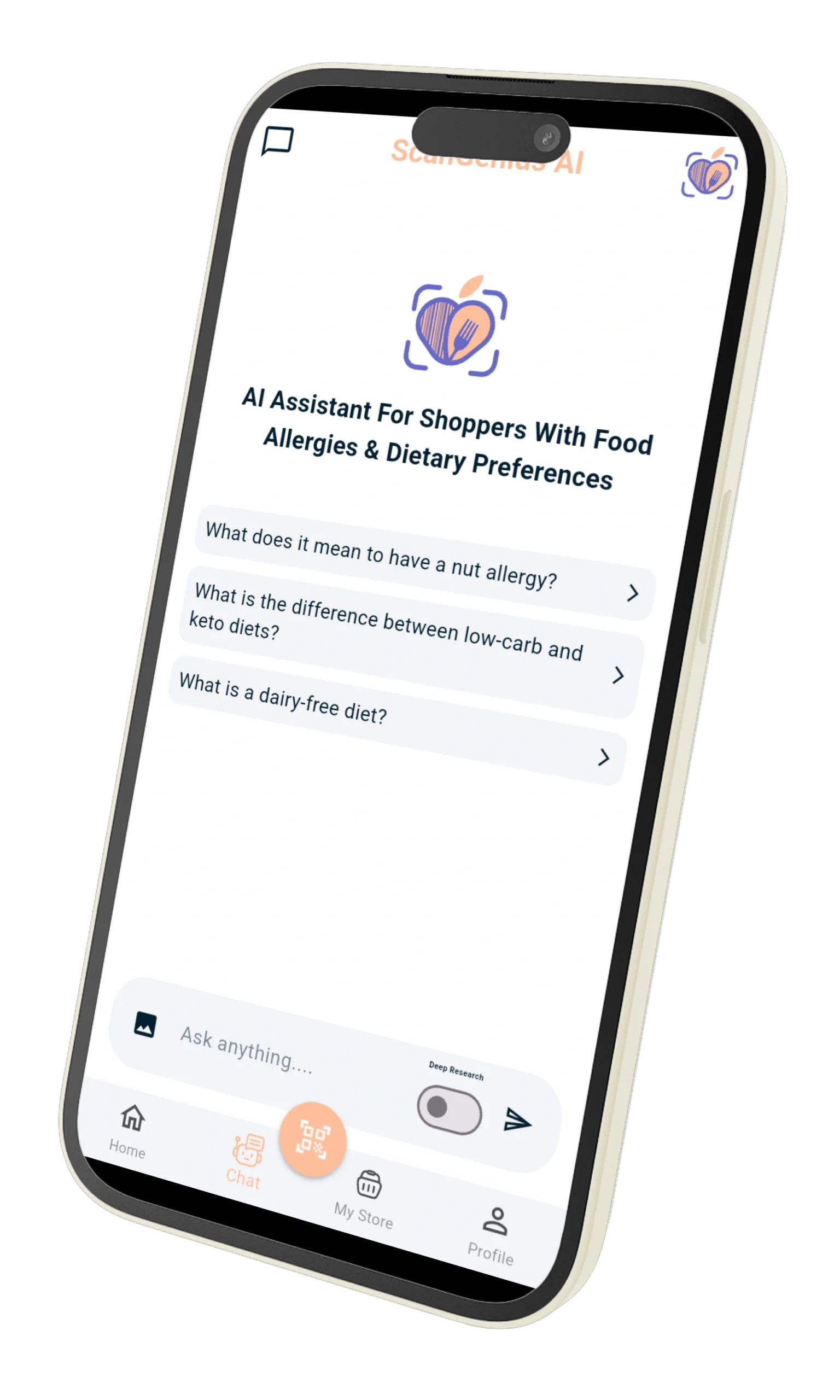
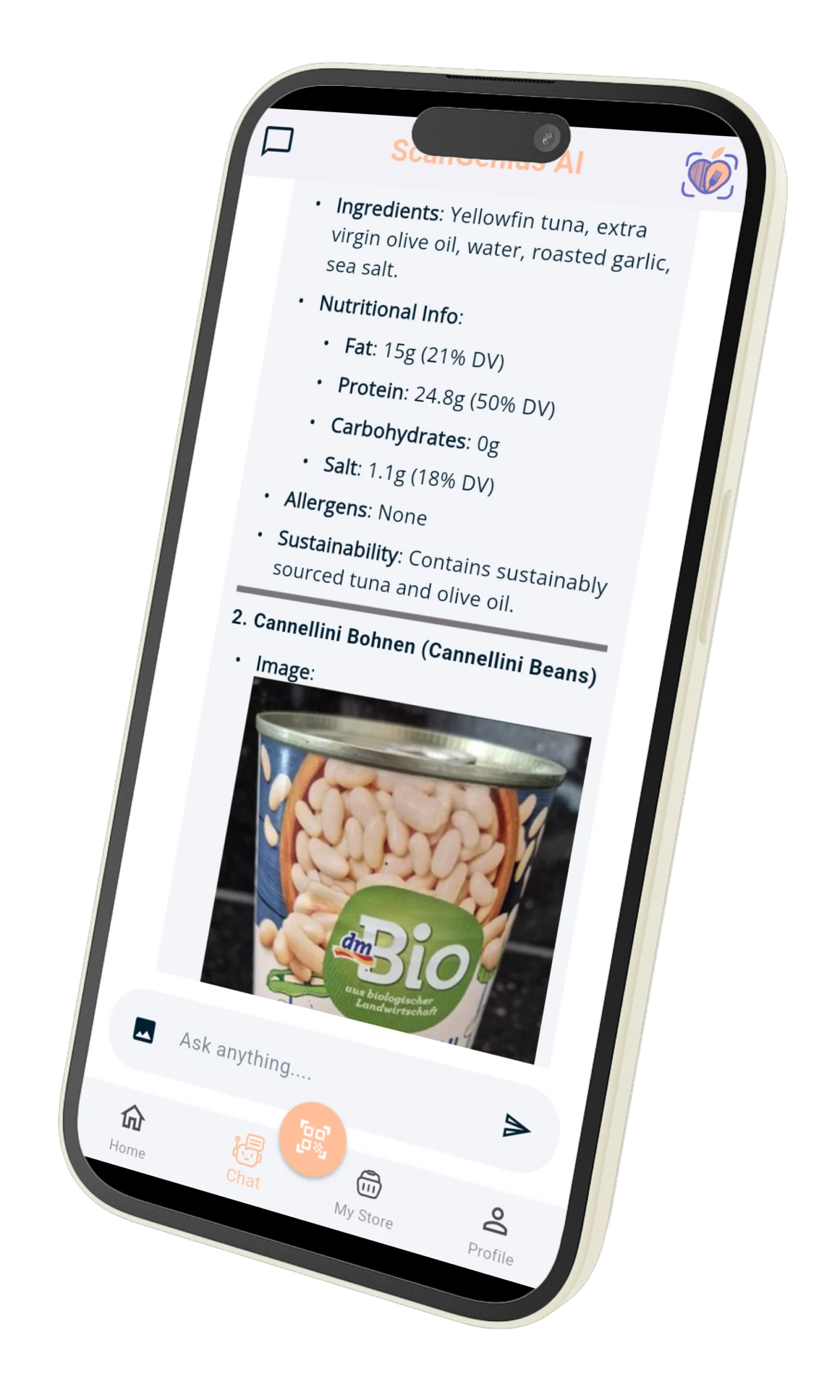
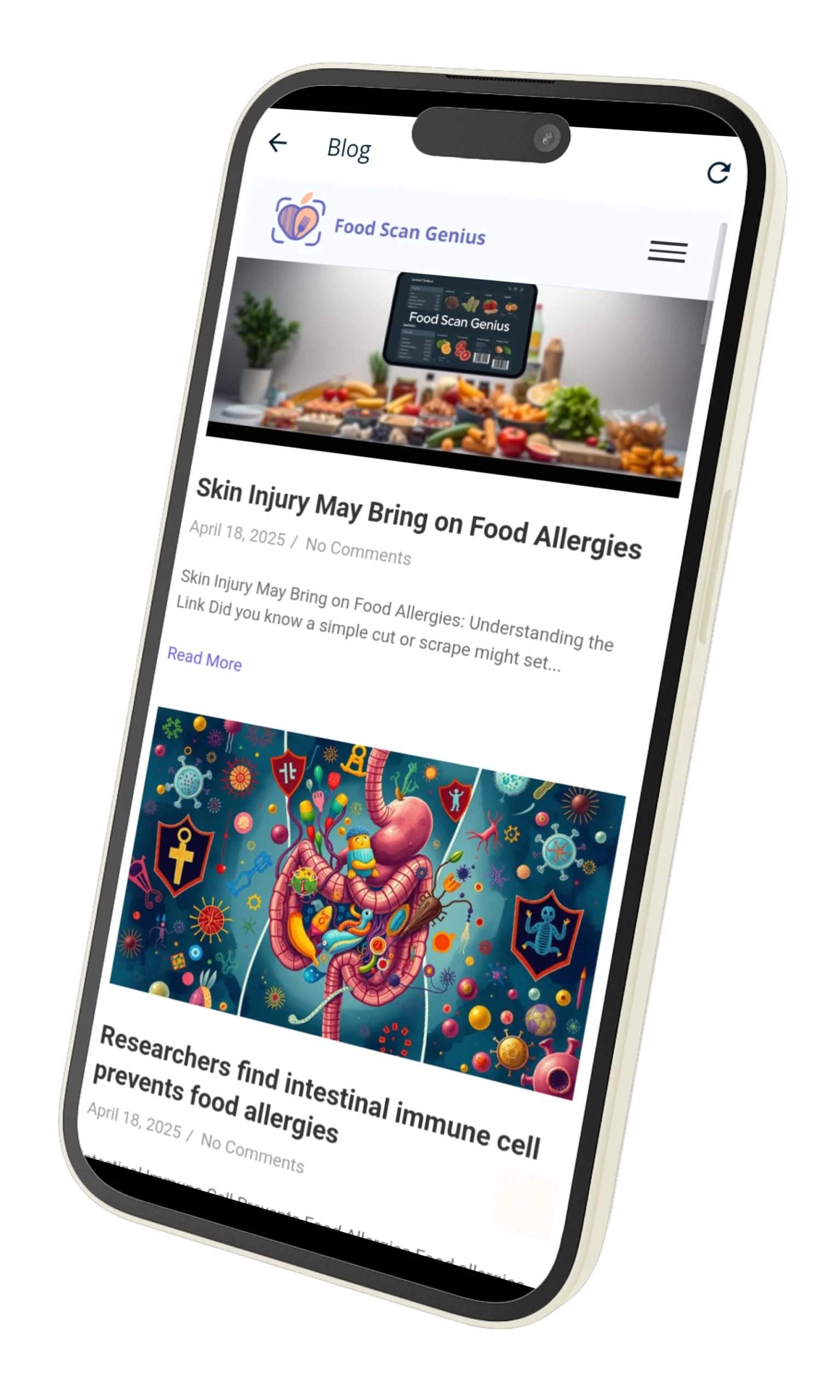
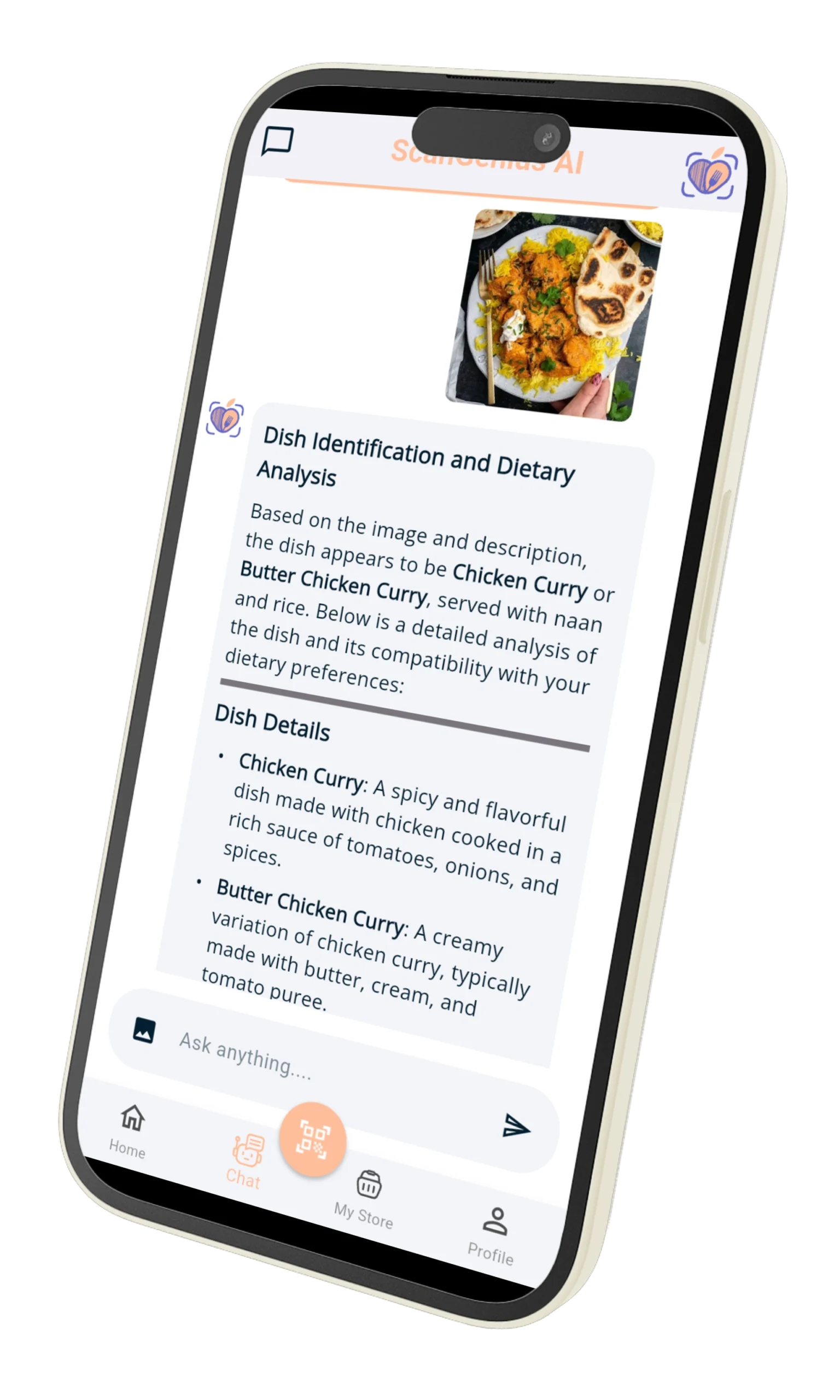

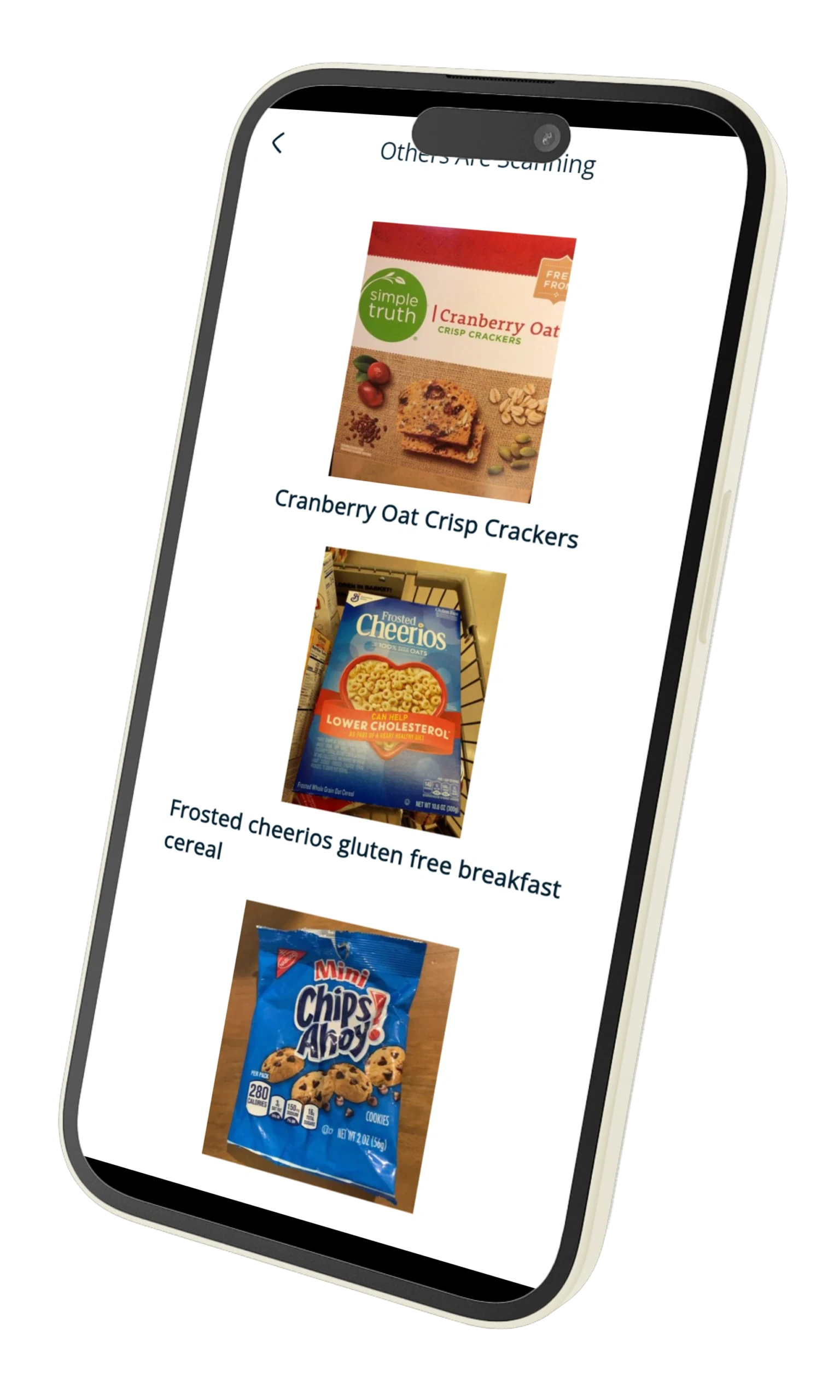
The vegan diet is more than a trend — it’s a global movement rooted in health, ethics, and sustainability. Whether you’re considering going vegan, are already plant-based, or simply curious about the benefits, this guide provides a comprehensive overview of vegan nutrition, lifestyle, and challenges. With Food Scan Genius, you can easily identify vegan-friendly products and avoid hidden animal ingredients while shopping with confidence.
A vegan diet is a type of plant-based eating pattern that excludes all animal products — including meat, poultry, fish, dairy, eggs, honey, and ingredients derived from animals such as gelatin or whey. Unlike vegetarianism, which may allow eggs and dairy, veganism goes further by avoiding all direct and indirect animal-based foods.
Many people adopt veganism not just as a diet but as a lifestyle choice, extending to clothing (avoiding leather, wool, silk) and personal care products (avoiding animal testing). The motivations vary, but common reasons include:
While plant-based eating has existed for centuries in cultures such as India (Jainism, Buddhism, Hinduism), the modern term “vegan” was coined in 1944 by Donald Watson, founder of the Vegan Society in the UK. Since then, veganism has grown from a niche philosophy to a mainstream global movement. Today, millions of people identify as vegan, and restaurants, supermarkets, and food manufacturers are adapting rapidly with plant-based alternatives.
In countries like the US, UK, Germany, and India, the availability of vegan foods has exploded — from vegan burgers and cheese to plant-based seafood and dairy alternatives. The market is expected to exceed $60 billion globally by 2030.
Numerous scientific studies have documented the potential health advantages of veganism. Key benefits include:
Beyond personal health, veganism has profound environmental benefits. Animal agriculture is a leading contributor to greenhouse gas emissions, deforestation, and water usage. Studies from Oxford University show that adopting a vegan diet can reduce an individual’s food carbon footprint by up to 73%.
Other key environmental advantages include:
For those passionate about sustainability, veganism is considered one of the most impactful individual choices to reduce climate change effects.
A vegan diet is incredibly diverse. Contrary to common myths, it’s not limited to salads and tofu. Vegan diets include:
Food Scan Genius helps identify hidden non-vegan ingredients in packaged foods — such as whey, gelatin, rennet, or casein — which can be hard to spot on labels.
Vegans eliminate all animal-derived foods. This includes:
Many processed foods also hide animal derivatives — soups with chicken stock, bread with eggs, candies with gelatin. Food Scan Genius simplifies this by instantly scanning and verifying vegan suitability.
A well-planned vegan diet can be nutritionally complete. However, there are a few nutrients that need extra attention:
Overnight oats with almond milk, chia seeds, and fresh strawberries
Lentil and quinoa salad with roasted vegetables and tahini dressing
Vegan curry with chickpeas, spinach, and coconut milk served with brown rice
Hummus with carrot sticks, or a smoothie with banana, spinach, and flaxseed
Living vegan in today’s world is easier but still requires vigilance. That’s where Food Scan Genius comes in:
Download Food Scan Genius and make vegan shopping effortless.
Yes, when well-planned, vegan diets provide all essential nutrients and lower risks of chronic diseases. Supplementation of B12 and vitamin D is often recommended.
Absolutely. Legumes, soy products, grains, nuts, and seeds provide adequate protein. Many athletes thrive on vegan diets.
Common supplements include vitamin B12, vitamin D (especially in winter), and omega-3 (from algae-based sources).
Not necessarily. Staples like beans, rice, vegetables, and seasonal fruits are affordable. Processed vegan alternatives can cost more but are optional.
Yes, with careful planning and professional guidance. Pediatric associations recognize vegan diets as safe for all life stages.
The vegan diet is a powerful choice for health, ethics, and the environment. With Food Scan Genius, you’ll never have to worry about hidden animal ingredients or misleading labels again. Shop smarter, eat better, and live in alignment with your values.
Navigating product labels can be hard. Many foods contain hidden vegan triggers, and ingredient terms aren’t always obvious. Our AI scans and filters food labels across thousands of products to help you make smarter choices.


"Food Scan Genius has truly transformed my grocery trips. With dietary restrictions, finding suitable foods used to be a hassle, but now I feel confident and informed with each scan. It's such a relief to know exactly what I'm buying. Highly recommend for anyone with food sensitivities!"

"Food Scan Genius has revolutionized the way I navigate the grocery store. With just a simple scan, I can determine if a product fits my dietary needs. The app's personalized profiles have made it easy to manage my family's different dietary restrictions. Thank you, Food Scan Genius!"

"Food Scan Genius has been a game-changer for me. As someone with multiple food allergies, it was always a struggle to find safe options. This app has made grocery shopping and dining out so much easier and stress-free. I can't imagine life without it!"
"You know, dealing with food allergies and dietary restrictions is no walk in the park. Trying to figure out what's safe to eat can be such a hassle, especially when ingredient lists and labels seem like they're written in another language. I just want to make sure I'm not risking my health with every bite. That's why I’m so glad I found Food Scan Genius. It makes everything so much easier by scanning and analyzing labels for me. Now, I can shop with confidence knowing I'm making safe and informed choices."
FoodScanGenius is a powerful and user-friendly app that allows you to scan barcodes and obtain detailed information about food ingredients. It helps you make informed choices by providing comprehensive data about allergens, dietary restrictions, and nutritional content.
Food Scan Genius is available for both iOS and Android devices. You can download the app for free from the App Store or Google Play Store. Download Food Scan Genius today and experience the freedom of effortless and safe food selection. Take control of your diet and embrace a healthier, allergen-conscious lifestyle with Food Scan Genius.
While the app offers a range of free features, including the barcode scanner and allergen database, there is also a premium version available that unlocks additional features, such as unlimited scans, personalized recommendations, and exclusive discounts.
We take data security and privacy seriously. FoodScanGenius follows industry best practices to safeguard your personal information. For more details, please refer to our privacy policy.
If you have any additional questions, feedback, or need assistance, please don't hesitate to reach out to our support team at 'help@scangeni.us'. We're here to help!

This page is part of Food Scan Genius’s dietary preference directory, helping shoppers with vegan find safe food products. Our AI technology screens ingredient lists for hidden triggers, allergens, and compliance with dietary choices.
Food Scan Genius is an offering from ScanGeni Ventures Pvt Ltd, an ‘AI first’ company driving value for the next generation of consumers. Get in touch with us to learn more:
© 2025 All rights reserved by ScanGeni Ventures Private Limited